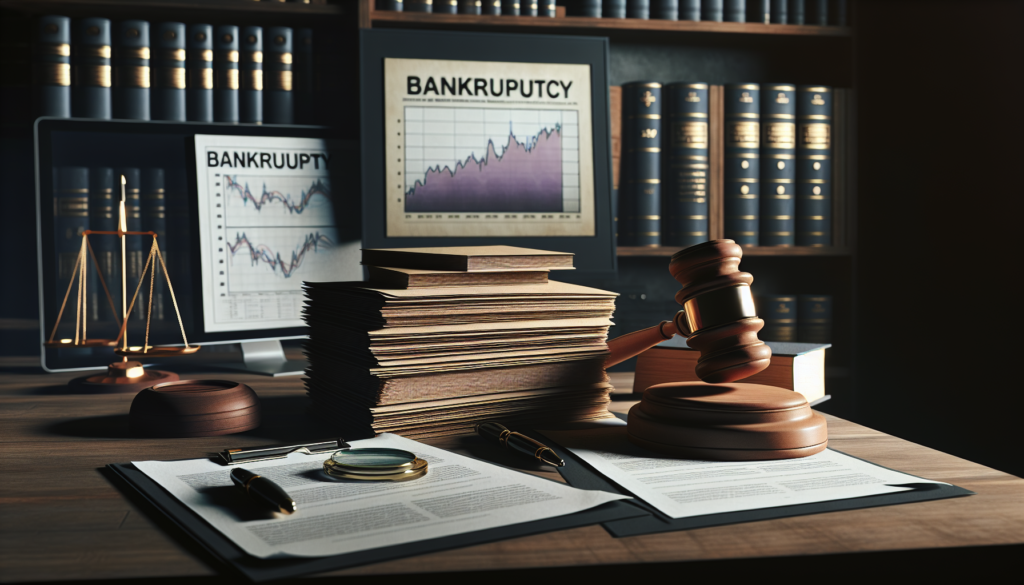Filing for Chapter 7 bankruptcy offers a pathway to financial relief for many individuals overwhelmed by debt. By liquidating non-exempt assets and discharging certain debts, Chapter 7 provides a fresh start for debtors. However, it’s crucial to recognize that not all debts can be wiped clean through this process. Understanding which debts remain after a Chapter 7 discharge is essential for anyone considering this form of bankruptcy. Here, we delve deeper into the types of debts that are typically non-dischargeable in a Chapter 7 bankruptcy case.
Student Loans: A Tough Barrier to Discharge
Student loans present a significant challenge for debtors seeking relief through Chapter 7 bankruptcy. To discharge student loans, one must demonstrate that repaying the debt would cause undue hardship, a standard that is notoriously difficult to meet. Courts often require proof that the debtor cannot maintain a minimal standard of living if forced to repay the loans, that this situation is likely to persist for a significant portion of the repayment period, and that the debtor has made good faith efforts to repay the loans before filing for bankruptcy.
Tax Debts: Navigating Complex Rules
Not all tax debts are anchored to you after a Chapter 7 discharge, but the criteria for dischargeability are stringent. Generally, income taxes may be discharged if they are for returns due at least three years before filing for bankruptcy, were filed at least two years prior to filing, and if the IRS assessed the tax debt at least 240 days before filing. This does not apply to taxes for which returns were never filed or were filed late after two years before the bankruptcy filing, nor does it apply to payroll taxes or fraud-related penalties.
Family Obligations: Child Support and Alimony
Debts related to child support and alimony are prioritized in bankruptcy proceedings and are not dischargeable under Chapter 7. These obligations are considered support debts, which bankruptcy law aims to protect, ensuring that such essential support payments continue unaffected.
Fines, Penalties, and DUI-Related Debts
Legal financial penalties, including fines and restitution arising from criminal activity or traffic violations, remain the debtor’s responsibility after a Chapter 7 discharge. Specifically, debts for personal injury caused by driving under the influence of alcohol or drugs are explicitly excluded from discharge, reflecting public policy priorities.
Condominium and Cooperative Housing Fees
Debts owed to a condominium or cooperative housing association for fees and assessments can become a complex issue in bankruptcy. While pre-filing debts might be discharged, any fees or assessments that accrue after the bankruptcy filing date are not dischargeable.
Debts from Divorce or Separation Agreements
Obligations specified in divorce or separation agreements, other than child support and alimony, pose a nuanced challenge. These might include debts assigned to you in the divorce decree, which can remain your responsibility if discharging them would financially harm your ex-spouse.
Willful and Malicious Injury Debts
Debts incurred through intentional harm to another person or property are not dischargeable in bankruptcy. This provision ensures that individuals cannot escape financial liability for actions taken with clear intent to cause harm.
Government-Related Educational Loans and Benefits
Loans or overpayments related to education, provided or guaranteed by government agencies, are generally non-dischargeable. This category includes not only student loans but also other types of educational benefits and overpayments.
The Importance of Accurate Debt Listing
A critical aspect of the bankruptcy process is the accurate listing of all creditors and debts. Failure to include a debt in your bankruptcy filing can result in that debt not being discharged, underscoring the importance of thorough documentation.
While Chapter 7 bankruptcy can alleviate the burden of many types of debt, it’s not a universal solution for all financial obligations. Understanding the nuances of non-dischargeable debts is crucial for setting realistic expectations and planning a sustainable financial recovery. For those navigating the complexities of bankruptcy, consulting with a knowledgeable bankruptcy attorney can provide invaluable guidance, ensuring that you make informed decisions tailored to your unique financial situation.


Get a Free Bankruptcy Case Evaluation